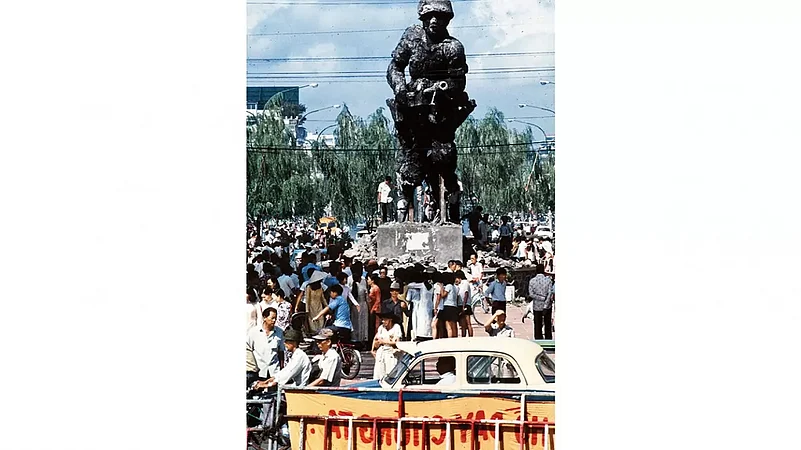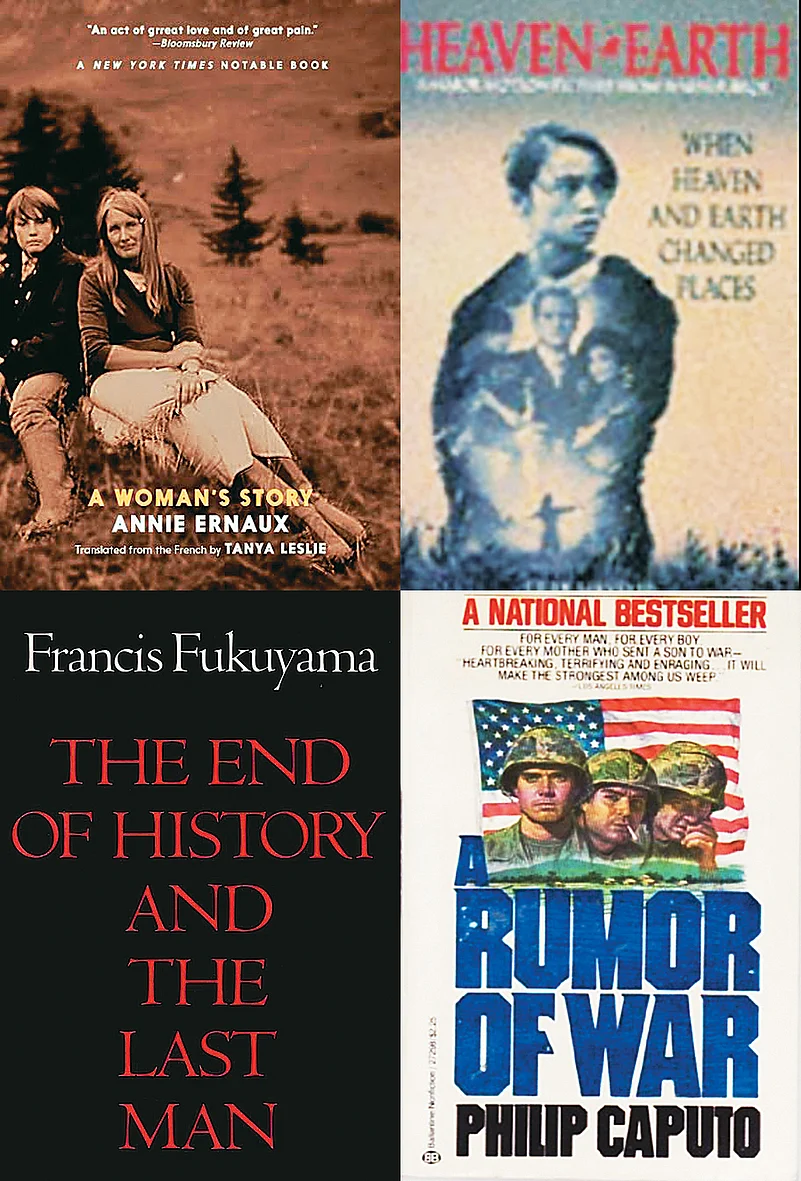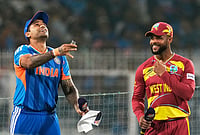One humid September night of 2016, I was in the middle of my Emergency night float at the coastal Qunfudhah City hospital. It was three o’clock with a full moon shining over the horizon and the warm Red Sea breeze setting the Palmyra trees dotting the hospital and the road fluttering about. I was waiting for the radiologist to decipher an accident victim’s Brain CAT scan. Thankfully, the medical internist Al Gozi was there to keep me company.
Al Gozi, is that very middle-eastern cosmopolitan sort: Intellectually curious and uber-westernised Saudi. Both of us were posited on the hospital parkway lit up by moonlight, with our backs resting on his Lexus, smoking the night away.
That night Al Gozi spoke dispassionately of the Arabic poetic tradition “for us Arabs, tales of life, justice, history, revenge, everything has been or invariably has to be put to verse”, he exclaimed whilst exhaling a plume of smoke into the predawn air. Here in the deserts on the seashores, Life’s tumults were lived, suffered, rued upon and finally cast in verse. The corpus of poems and ballads dating back to pre-Islamic animist times celebrate Love, Valour, satire and tragedy. Along the way the poetry had exhilarated the oasis dwellers and the Bedouin for more than a millennia and in time morphed from collective emotional repository to a historical archive.
For reasons best known to him, Al Gozi divagated and started talking about the life and times of Mu’tamid Bin Abbad, the last moorish Caliph of Ishbilia (Seville)in Spain. He then commenced to recite a poem written by the unfortunate monarch. The particular rhyming and the emotive volubility seeking its play in Al Gozi’s thick baritone voice evoked my interest no less. I started recording the audio of the verses in Arabic:
My daughters when I look at your faces I
remember the joy of Eid when I was the king
Now those feet are splattered with dirt and mud which once would traipse paths littered with flower petals
I remember the lavish meals but now your
livers are dry with hunger.
Whoever slept a king, thinking his kingdom will last forever is living in a dream!
Al Gozi’s précis left nothing out, in summing up the turn of events that lay behind this poem. His lending a voice to the existential angst of Mu’tamid, who found himself incarcerated by the Al Moravids, former comrades, instead of uniting against their opponent Ferdinand who was spearheading the Reconqueista wars to expel the Moors from Iberian peninsula.
The poetic lament of a Moorish king provided a direct counterpoise to the instability of human memory, which slips through chronicler pens and historians, constraining their work to Ferdinand’s triumphs, which drew down the curtains over eight centuries of Moorish rule and the consequent Inquisition. The fate of Mu’tamid’s daughters would drop through the crevice of time into dissolution and anonymity. But the lines penned by Mu’tamid made sure that their story would come forth albeit as forgotten footnote.
These autobiographical narratives offering radical transparency in illustrating the times their creators lived through, neither commence nor will end with a ruined Moorish king lamenting his fate.
The works of many authors offer the readers a vicarious presence into the times they lived and endured. What makes them interesting is the plenitude of detail and emotive content, intertwining personal with the historical, creating a self-deforming but emotionally evocative corpus of work. A mention would be A Woman in Berlin by an anonymous German woman who lived out the harrowing days in the city after fall of Berlin.
The 2022 Nobel Prize in Literature, which was announced on 06 October 2022, and awarded to Annie Arnaux “for the courage and clinical acuity with which she uncovers the roots, estrangements and collective restraints of personal memory.”
Arnaux’s Nobel Prize nomination and win put her works to added spotlight. While many people laud her as the stylistic progeny of Marcel Proust, they miss out the strong feminist subtext innate to her experience. Arnaux’s life offers a strangely ironical tale around it. She came of age even as the second wave of feminism had just started gaining momentum. But her life seemed condemned to carry the weight of a whole unliberated western feminine experience on her shoulders just before times changed.
1.
My first poignant encounter with this genre came through Le Ly Hayslip’s poignant memoir When Heaven and Earth Changed Places (1989) that details the many lives she lived in one lifetime. From a naive peasant girl born and brought up in the small central Vietnamese village of Ky La to her travails in the aftermath of the American intervention in her country, which upended her world and her family’s fortunes and her subsequent immigrant life in America.

Her firsthand account luridly introduces a female observer into the war story;From speaking out,on her constant change in outlook to the many vulnerabilities apart from the mutilating horrors that the conflict exacted on both the her physical and psycho-social domains in particular and the Vietnamese populace in general.
Her memoir traces her life’s trajectory from a peasant girl to an displaced unwed teen mother who, forced by her circumstances, made her ends meet by moonlighting as a smalltime hawker and once as a prostitute. Immigrating to the United States in 1970 at the tender age of twenty after marrying an American contractor, her unfortunate circumstances returned in the form of constrained finances and an estranged husband. The book portrays her zest for independent life and economic betterment, her return home after many years to meet the family she had left behind in Vietnam, and who had had their own share of tragedies to bear with no redemption in sight.
The book and the hindsight it offered would infact fill in the many questions my mind had sprung after reading Philip Caputo’s tour de force Rumor of War a Vietnam Vet’s quintessential anti-war autobiographical foray. Caputo was dispassionate about his time in the marines fighting in Vietnam excavating everything: from the righteousness rhetoric feeding moral justifications of the war in the American political discourse and polity’s chicken-hawks down to the martial tunes of the bands he marched to. He spares none, not even his own memory motivations borne of sentimentalizing stories about the Greatest generation— read Second World War vets— which infused sense of mission in his generation.
Caputo’s journey from an idealistic Marine Corps lieutenant into a war hardened soldier born of his own struggle of individual survival in the war like that of his men goes on to demolish the many shibboleths that fed his pre-war motivational credo. What comes forth is a cynical and disillusioned veteran who makes it a point to be in Saigon in 1975— as a journalist though— as the Vietcong moved in to reclaim South Vietnam fully, fulfilling a sense of closure to see the conflict through in one way or another.
Le Ly Hayslip book offers an obverse side to Caputo’s journey. Whether Caputo’s actions in Danang and elsewhere were contributory to the condition Le Ly Hayslip would find herself in is a moot point. She, immured to upheavals of wartime realities, dispassionately describes her adolescent life getting fast forwarded and pathologized, enduring rape, imprisonment, loss of family members, sexual exploitation, that came her way because of the social meltdown catalysed by the conflict with combatants on both sides descending into predators on people. Her experience, poignant, but also irrelevant like Caputo’s in the bigger scheme of things. She isn’t there to witness fall of Saigon, and in her second life its occurrence becomes irrelevant limited to worries about her family back there
The Vietnam fiasco and books like Caputo’s would lead one to surmise that the Americans would always avoid another land war in Asia, given the emotional and physical costs exacted by Indo-China. But as the oost-9/11 wars proved, the reams of literature on the war, on leadership, and the military dynamics that warned so, the kind of conclusion was delusional. The Kantian paradigm of Humanity being in constant evolution for the better wouldn’t hold. The words and rhetoric that led to justify the wars were also utilized to end the war, just like the fall of Saigon, Kabul too fell. In time the memories, some real some manufactured would see sentimentalising of war experiences to justify other wars and give rise to another Spielberg descendant’s epic in Hollywood with the forces of tyranny being battled and only a change of banners in on-screen depictions.
In the process, all these memories proved inadequate and unstable to influence policymakers and politicians to rethink and redefine politics in terms of avoiding conflict. Instead with generational change and the amnesia it brings, what came forth were renewed belligerence and ideas of power play projection and a renewed quest for world domination after the Cold War was over. But in the end, Fukuyama’s The end-of-history failed to find a redemption song. The project of the New American Century floundered in the morass of Iraqi and Afghanistan battlefields.
2.
In the twentieth century, the world that we lived in previously would find itself coming to terms with the radically altered womens roles of women and their participation in society. The war years especially saw women increasingly venturing out of home and working; from factory workers to being code breakers to the Women’s Auxiliary Corps (WACs).
This brought radical shift in gender dynamics while feminism came to the forth with women increasingly calling for legislation to guarantee suffragate, workplace equality, equal wages, sexual preferences or decoupling of identities from their spouses. The invention of the pill was another milestone that gave women more choice in spacing families and seeking intimacy on their own terms and in the long run spurred the sexual revolution.

These changes in western societies were not invacuo. At around the same time, one finds landmark judgments seeking to desegregate education in the United states like Brown v Board of Education or legalising abortion through Roe v Wade. New labour laws, access to universal health and right to education being promulgated. New labour laws and the right to universal healthcare and education were also promulgated.
Arnaux’s life’s milestones made her suffer and also witness the change that offered women a “choice’, in regard to their lives and possibility of their desires, independent of economic and social conditions in which they were born.
In a way she was no less a participant or a victim of her, times, but an articulate voice in a battle that sought equality of sexes and rights in every sphere and embodied within the trials and tribulations which mark their presence in her work.
Arnaux’s self-image of someone ‘excavating the past’ due to mistrusting her own memories is much more than what may appear at its face value. Her delving into the unilluminated corners of individual female experience at the very cusp of changing times, gender roles and social mores in Europe and the larger western hemisphere make her experience and writing quite unique. To give an example, her seeking sexual experience and suffering shame in the opinionated eyes of others came just about before shame of unbridled intimacy became redundant in the wake of the sexual revolution in the west. The diminishment she suffered in enduring an abortion just before before it was legalised, obviated perhaps any closure on the suffering she endured in the process
Her revisiting of her memories in subsequent works points to the constraints that silenced or muted her feelings from expressing in the manner she would have wanted in a different time in a more liberal milieu.
At his Nobel Prize acceptance speech in 1958, the celebrated French writer and thinker Albert Camus made a distinction between those who create history and those who suffer it. Arnaux belongs to the latter category of the artists. Her Nobel is recognition not only to her as a self-chronicler but creating a social history and its resource archive. This contribution transcends the stories of winners and losers forming the foundation of real human history through the lives of everyday people.
(Views expressed are personal)
Dr. Khalid Mir is a surgeon who has authored Jaffna Street: Tales of Life, Death, and Survival






















